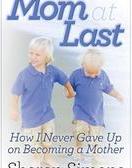With so many moving parts to surrogacy it is no wonder the process can be overwhelming. Learning to be your own best advocate, effectively planning financially, physically and financially help you maximize your chances of success and minimize your financial expenditure.

The first step in building the foundation is preparing to pay for treatment and the ancillary costs associated with surrogacy. Finances are specific to individual circumstances. Sometimes savings are available, often the sale of portfolio items are used to fund treatment. A third popular option are various borrowing opportunities. All of the above should be discussed with a tax professional and or financial planner in the context of your individualized circumstances. It is also vital to plan and prepare for multiple treatment cycles. In my experience balancing hope with caution is what helps my clients to approach treatment with clear expectations and realistic parameters.
The second step in building the foundation is to identify the fertility center, the Reproductive Endocrinologist and the Embryologist who have above national average success rates for the type of treatment you are exploring as well as a specialty in treating your specific diagnosis.
The next resource is identifying the right donor and/or surrogate. Seeking ideal criteria in a perfect stranger is often a very intimate process. There is always some level of risk in the decision making process. Being your own best advocate is helpful in mitigating and or eliminating potential stumbling blocks. Identifying a candidate on line can be risky since they are not screened and you will not have the benefits of a third party to act as an intermediary. On the other hand, it is necessary to be aware of onerous contracts with recruiting agencies.
The fourth brick in the foundation is understanding the legal terrain and how it affects your specific situation. Surrogate friendly states vary across the country. Surrogate friendly means that parentage can be achieved at some future point after birth. But from state to state this varies greatly. Some states require pre birth orders to get intended parents names on the birth certificate after the birth and other states require a formal adoption after the surrogate delivers. Other states are favorable in getting intended parents names on the birth certificate at birth, as long as one parent is biologically related to the child. Furthermore, often how the embryos are created, and with whose biological material is relevant to the big picture. Thus, the individualized situation can and does impact the selection of a surrogate candidate from state to state. Finally, selecting a surrogate with like-minded intentions for the term of the pregnancy is essential.
There is still more to consider. Most health insurance policies have exclusions for surrogates. Therefore, it is essential to analyze policy alternatives that may help you to save thousands of dollars in the future. Some states offer maternity policies, other states offer nothing. Disability and complications only polices can often be purchased to offset financial risk. But it is the gap analysis performed by the licensed insurance agent that can help uncover what is best for your given situation, the surrogate, the state where she will deliver, and how these factors impact your individual risk adversity given your personal financial situation.
Another extremely important and often overlooked resource in family building is estate planning. Prior to surrogates going to embryo transfer it is essential to engage an estate planner to draft directives and desires and prepare effectively for any unforeseen circumstances. This provides the most protections for all involved parties.
Building the foundation for treatment is essential. Knowing all available options, researching the viability of each options, interviewing several reproductive specialists to determine if you are in the right place are all very relevant and key factors to consider before patients begin the journey.
When making educated decisions to pursue treatment options, I encourage my clients to take into consideration all the facts. Because making informed medical decisions is the best way to maximize their chances of success and minimize their financial expenditure.
About the Author
As one of the first infertility consultancies in the United States, Lotus Blossom Consulting, LLC was founded by Mindy Berkson in 2005. With more than a decade of experience at physician’s offices, and egg donor and surrogacy agencies, Berkson assists individuals working through the often-challenging roadblocks of infertility, by providing the best information and resources available to them from around the world – all in one location.
Lotus Blossom Consulting works with individuals on a case-by-case basis, taking into consideration clients’ emotional, physical and financial infertility issues and then develops an individualized, comprehensive plan, to help clients make informed decisions and pull together a team of unbiased professionals to accomplish a treatment cycle. Mindy is a sought-after infertility expert and has appeared on countless media programs and speaker panels educating audiences on the topic of infertility, egg banking and surrogacy. For more information about Lotus Blossom Consulting, LLC, call toll free (877) 881-2685, email [email protected] or visit the web at www.lotusblossomconsulting.com or www.infertilityconsultant.com.
Image courtesy of [Jomphong] / FreeDigitalPhotos.net

